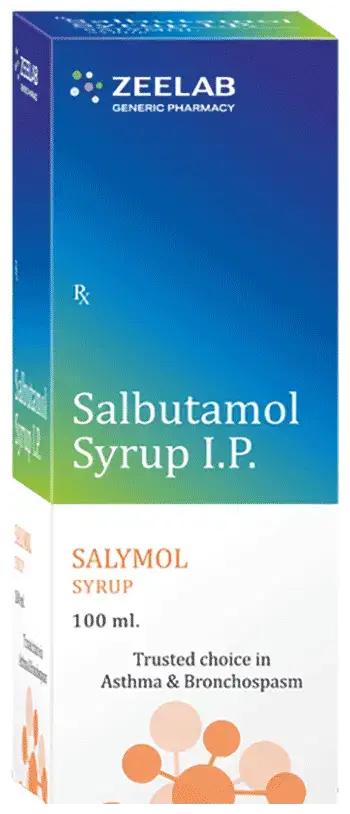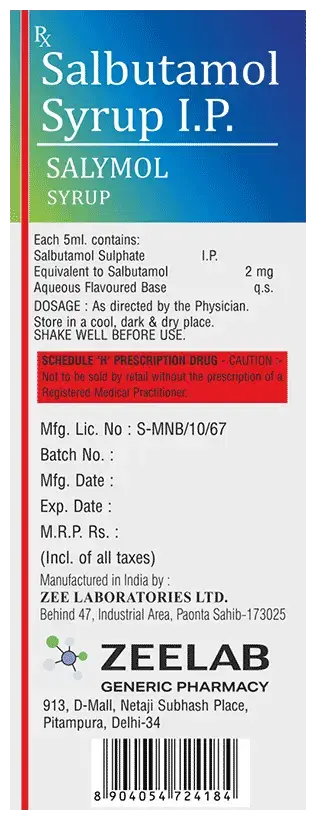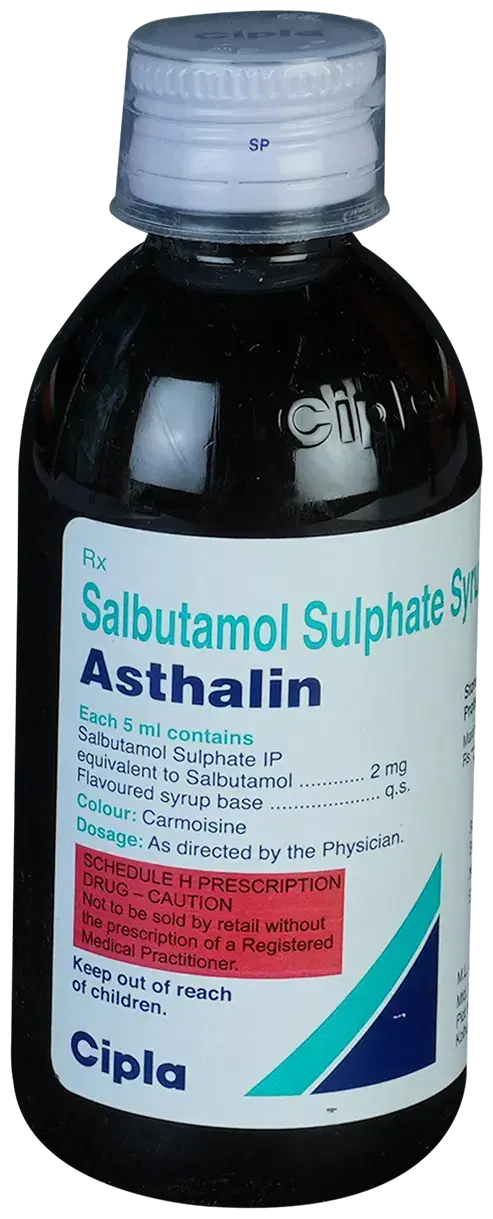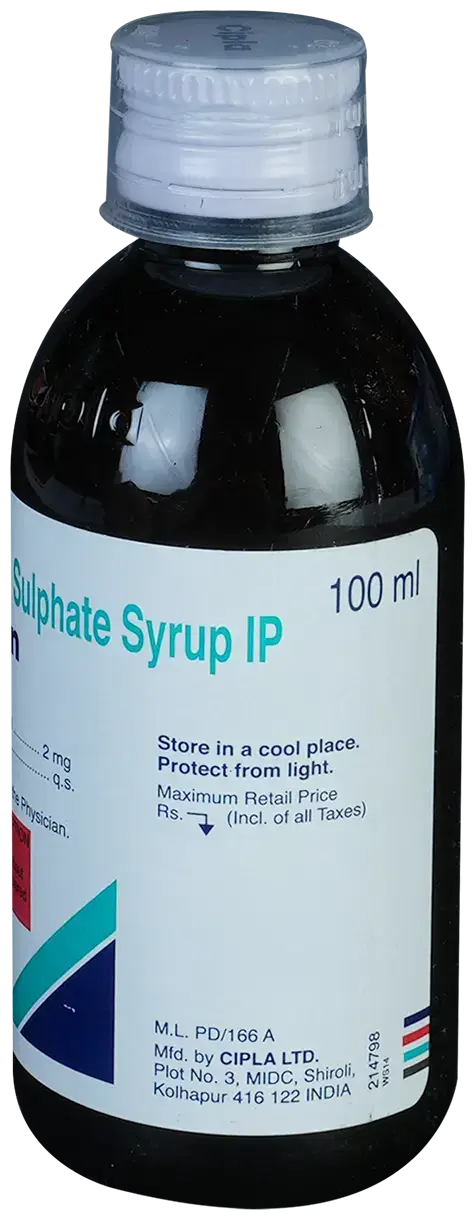Accuneb (Albuterol (Salbutamol) Syrup
Generic
Albuterol {Salbutamol} (Generic Equivalent to Accuneb)
Albuterol {Salbutamol} (Generic Equivalent to Accuneb)
Accuneb Syrup belongs to a group of medicines called fast-acting bronchodilators or “relievers”. It’s used to treat the symptoms of asthma and chronic obstructive pulmonary diseases (COPD) such as coughing, wheezing, and breathlessness.
Accuneb Syrup is called “reliever” inhalers because they give you quick relief from breathing problems when you need it. In most cases, you will be given another inhaler to prevent your symptoms (a “preventer”) and you should use this regularly every day. Accuneb Syrup works quickly and the effects can last several hours. You can use it at any time of day, but only use it when you notice symptoms, such as coughing, wheezing, shortness of breath, tightness in the chest or you know that you are going to do an activity that can cause breathlessness. When an asthma attack happens, you should take the number of puffs your doctor recommends. There are several types of inhaler devices so make sure you know how to use your inhaler correctly, otherwise, it may not work. Do not stop using this medicine unless your doctor tells you to. If you stop, your breathing problems could get worse.
Accuneb Syrup is generally safe and effective but may cause some common side effects which include tremors, headaches, and tachycardia. These side effects are not often dangerous and should gradually improve as your body gets used to this medicine. There are other rare, side effects and you should call your doctor straight away if you get chest pain, a very bad headache, or very bad dizziness.
Before using Accuneb Syrup, you should tell your doctor if you have high blood pressure, an overactive thyroid gland, a history of heart problems, diabetes, or low levels of potassium in your blood to make sure it is safe. Also, make sure your doctor knows if you are pregnant or breast-feeding before taking this medicine. This medicine can make you feel dizzy or shaky, therefore, do not drive, use tools, or machinery until you feel better. Avoid smoking as it causes damage to your lungs and will make your condition worse.
Uses Of Accuneb Syrup
- Treatment and prevention of Asthma
- Treatment of Chronic obstructive pulmonary disease (COPD)
Benefits Of Accuneb Syrup
In Treatment And Prevention Of Asthma
Accuneb Syrup can help prevent the onset of an asthma attack if it is taken before exercise or exposure to some “triggers”. These may include house dust, pollen, pets, and cigarette smoke. This medicine will allow you to exercise more freely without worrying about getting symptoms such as wheezing, coughing, and shortness of breath. It allows you to live your life more freely without worrying so much about things that set off your symptoms.
In Treatment Of Chronic Obstructive Pulmonary Disease (COPD)
Bronchodilators like Accuneb Syrup help the airways in your lungs stay open. They work by relaxing the muscles of these airways. This makes it easier for air to get in and out. It will relieve symptoms such as tightness in your chest, shortness of breath, wheezing and coughing and help you carry out your daily activities more easily. This medicine is safe and effective. It usually starts to work within a few minutes and the effects can last up to several hours. Do not stop using it unless you are advised to by your doctor.
Side Effects Of Accuneb Syrup
Most side effects do not require any medical attention and disappear as your body adjusts to the medicine. Consult your doctor if they persist or if you’re worried about them
Common Side Effects Of Ventolin
- Tachycardia
- Tremors
- Headache
- Palpitations
- Increased heart rate
- Muscle cramp
How To Use Accuneb Syrup
Use this medicine in the dose and duration as advised by your doctor. Check the label for directions before use. Twist off the top of the respule/transpule and squeeze all the liquid into the nebulizer. It should be used right away after opening.
How Accuneb Syrup Works
Accuneb Syrup is a bronchodilator. It works by relaxing the muscles in the airways and widens airways. This makes breathing easier.
Disclaimer :The information provided on the website is intended to facilitate awareness about healthcare products and medical conditions generally but it is not a substitute for professional medical attention or advice. You should always speak with a qualified healthcare practitioner before taking any prescription or non-prescription drug. |
| Product Type--Salt | Generic–Albuterol {Salbutamol} (Generic Equivalent to Accuneb) |
|---|---|
| tag--Manufacturer | Best Selling–Zeelab Pharmacy, Top Brand–Cipla |
| Power--Pack Size | 2mg–100ml in 1 Bottle (1 Bottle), 2mg–100ml in 1 Bottle (2 Bottles), 2mg–100ml in 1 Bottle (4 Bottles), 2mg–100ml in 1 Bottle (8 Bottles), 2mg–100ml in 1 Bottle (1 Bottle), 2mg–100ml in 1 Bottle (2 Bottles), 2mg–100ml in 1 Bottle (4 Bottles), 2mg–100ml in 1 Bottle (8 Bottles) |




